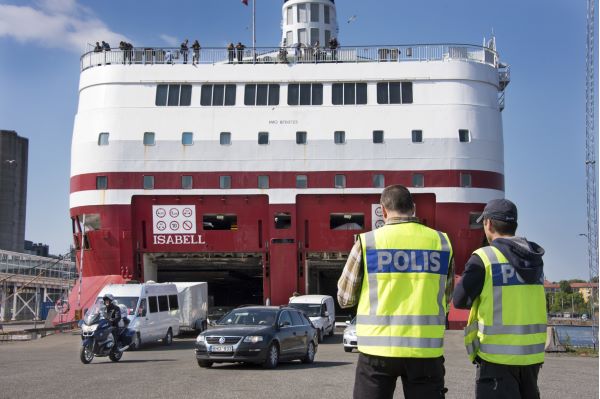Due to the serious security situation, there is greater need for control over who is attempting to enter Sweden and for what purposes. The Government has therefore decided to expand the mandate of the Police to intensify internal border control. This was announced at a press conference on 1 August by Prime Minister Ulf Kristersson and Minister for Justice Gunnar Strömmer.
“People with little connection to Sweden will not be able to come here to commit offences or act in violation of Swedish security interests,” says Mr Kristersson, who gave an overview of the Government’s measures to strengthen Sweden’s security at the press conference.
Internal border control aims to identify people entering Sweden who may constitute a security threat or otherwise threaten public order and security in the country. In May this year, the Government decided to temporarily reintroduce internal border controls. This decision will remain in effect until the beginning of November.
“In the appropriation directions for 2023, the Police were tasked with securing and carrying out controls and other types of checks at the internal border. Since the end of last year when this task was assigned, the security situation has deteriorated. For this reason, we now see the need for enhanced efforts and intensified controls,” says Mr Strömmer.
Intensified work on internal border controls could involve measures enhancing internal border control or conducting internal controls of aliens through authorisation of special powers in areas near the border. These special powers are granted through a new act that entered into force yesterday, 1 August, and which lowers the threshold for when the Police may carry out internal controls of aliens.
A report is to be presented on 1 March 2024.
Like the Danish Government, the Swedish Government is also examining other possible measures in the prevailing security situation. This includes considering how the Public Order Act could be revamped. This would not entail a general prohibition of certain expressions, but rather a broadening of the examination of applications for public gatherings. This would make it possible to consider not only public disturbances at the locations in question, but also Sweden’s security, when deciding on such applications.
These are issues that demand careful consideration, and potential amendments must obviously respect the constitutionally protected freedom of expression.

